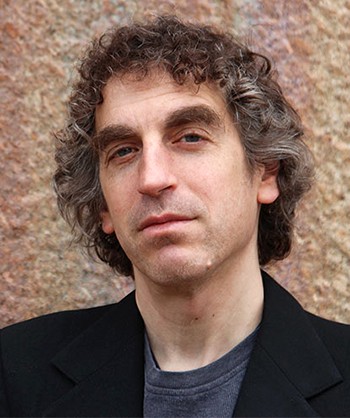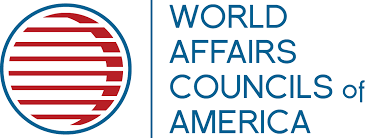T. William and Patricia Ayers Global Tipping Points Series |
"...understanding contrasting perspectives will improve everybody’s ability to skillfully engage in their own understandings of world politics." Dr. Jonathan Kirshner on why it is important to understand different approaches to making sense of international relations.
For many, terms such as Realism, Liberalism, Constructivism, and more may contain completely new ideas on how to understand the world. Unless you took International Relations courses in high school or college, it is likely that these terms are unfamiliar, which is exactly why the World Affairs Council of New Hampshire is proud to host a three-part series on Making Sense of the World.
WACNH and its global audiences came together for an insightful conversation with Professor Jonathan Kirshner from Boston College to delve into the core of the "Realist" approach. Professor Kirshner unraveled the meaning behind this perspective and shed light on its potential implications for the United States. This session offered a pragmatic exploration of foreign policy, providing insights into the realistic assessment of global relations and how it can inform a robust and sustainable path forward for the U.S.
This was the first installment of our exploration of the United States' role on the world stage in our three-part T. William and Patricia Ayers Global Tipping Point series, "Making Sense of the World". Timely in light of the approaching Presidential election, this series invites distinguished experts to elaborate upon distinct foreign policy approaches. Our aim is to present attendees with a well-rounded understanding of the complexities in the nation's global interactions.
About the Speaker

Jonathan Kirshner is Professor of Political Science and International Studies. His research and teaching interests focus on international relations, political economy (especially macroeconomics and money), and politics and film. His current research includes projects on classical realism, the international political implications of the financial crisis and its aftermath, and the politics of mid-century cinema.
Prior to joining Boston College, Kirshner was the Stephen and Barbara Friedman Professor of International Political Economy in the Department of Government at Cornell University. At Cornell, he also served as director of the Reppy Institute for Peace and Conflict Studies from 2007 to 2015, and was the recipient of the Provost’s Award for Distinguished Scholarship and the Stephen and Margery Russell Distinguished Teaching Award.
Recent books include An Unwritten Future: Realism and Uncertainty in World Politics, American Power after the Financial Crisis, and Hollywood’s Last Golden Age: Politics, Society and the Seventies Film in America. His first book, Currency and Coercion, explored how states manipulate international monetary relations to advance security-related goals. Another book, Appeasing Bankers: Financial Caution on the Road to War, illustrated how financial interests (such as banks) and international financial markets can shape and constrain states’ grand strategies and influence decisions about war and peace. Appeasing Bankers won the best book award from the International Security Studies Section of the International Studies Association.
Kirshner was the first World Politics Visiting Fellow at Princeton University’s Institute for International and Regional Studies, and was the director of the Economics and National Security Program at the Olin Institute at Harvard University from 2000-04. With Eric Helleiner, he is the co-editor of the multi-disciplinary book series “Cornell Studies in Money,” as well as the books The Great Wall of Money: Power and Politics in China’s International Monetary Relations and The Future of the Dollar.


![]()


